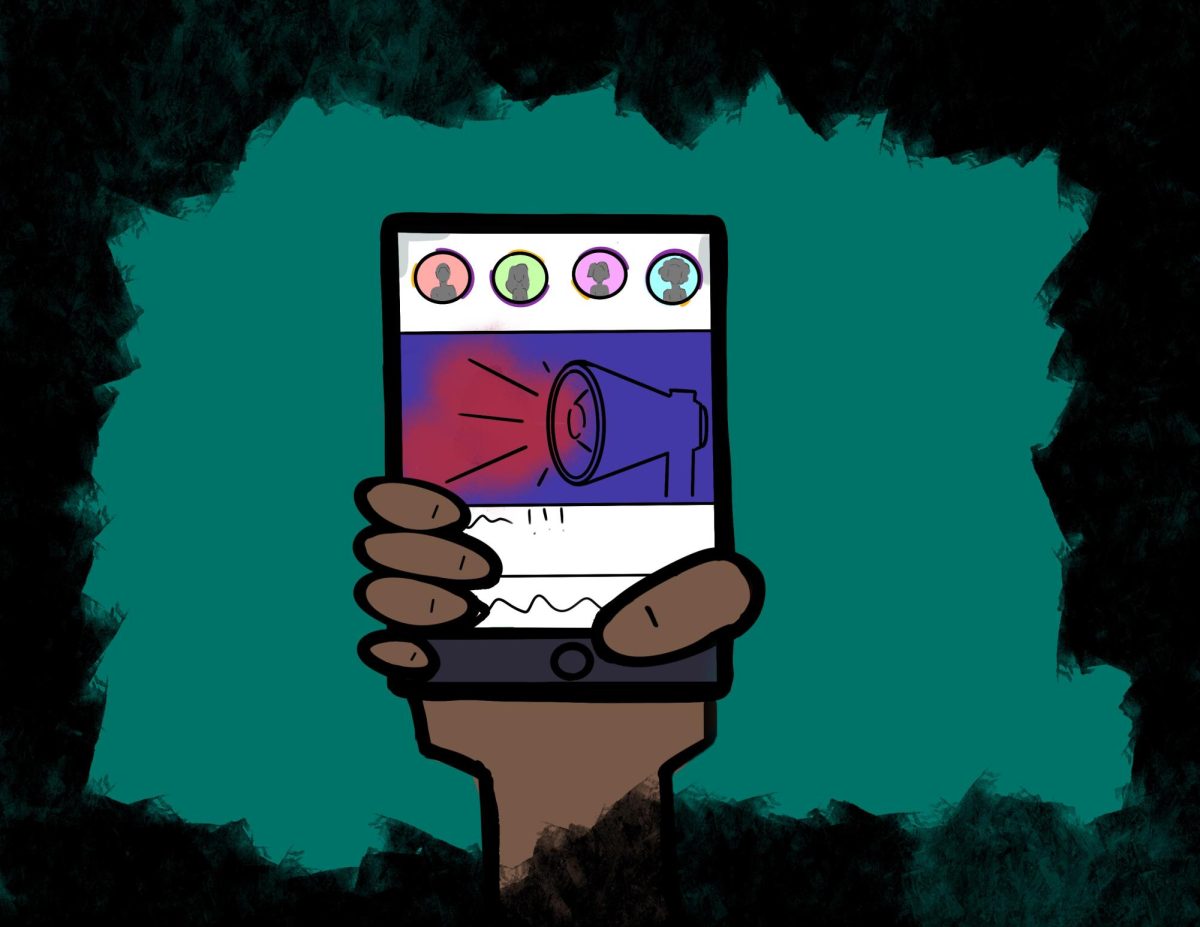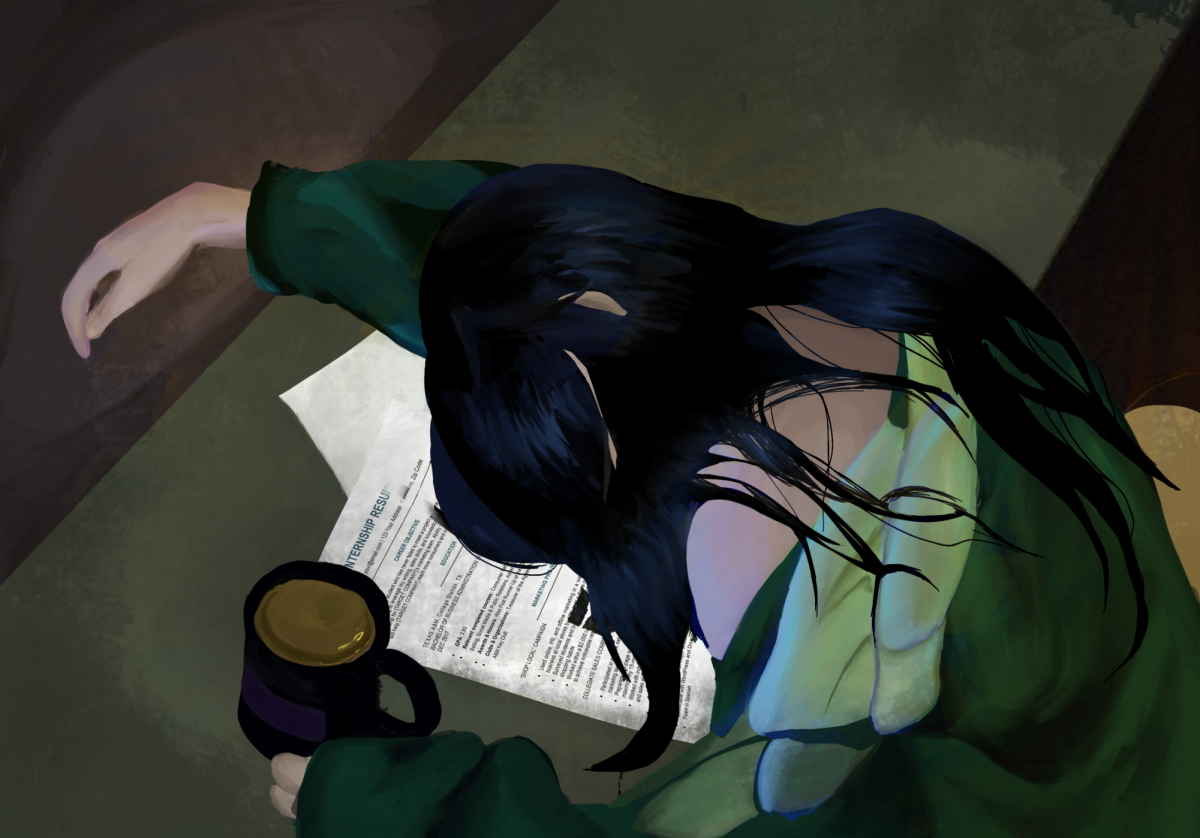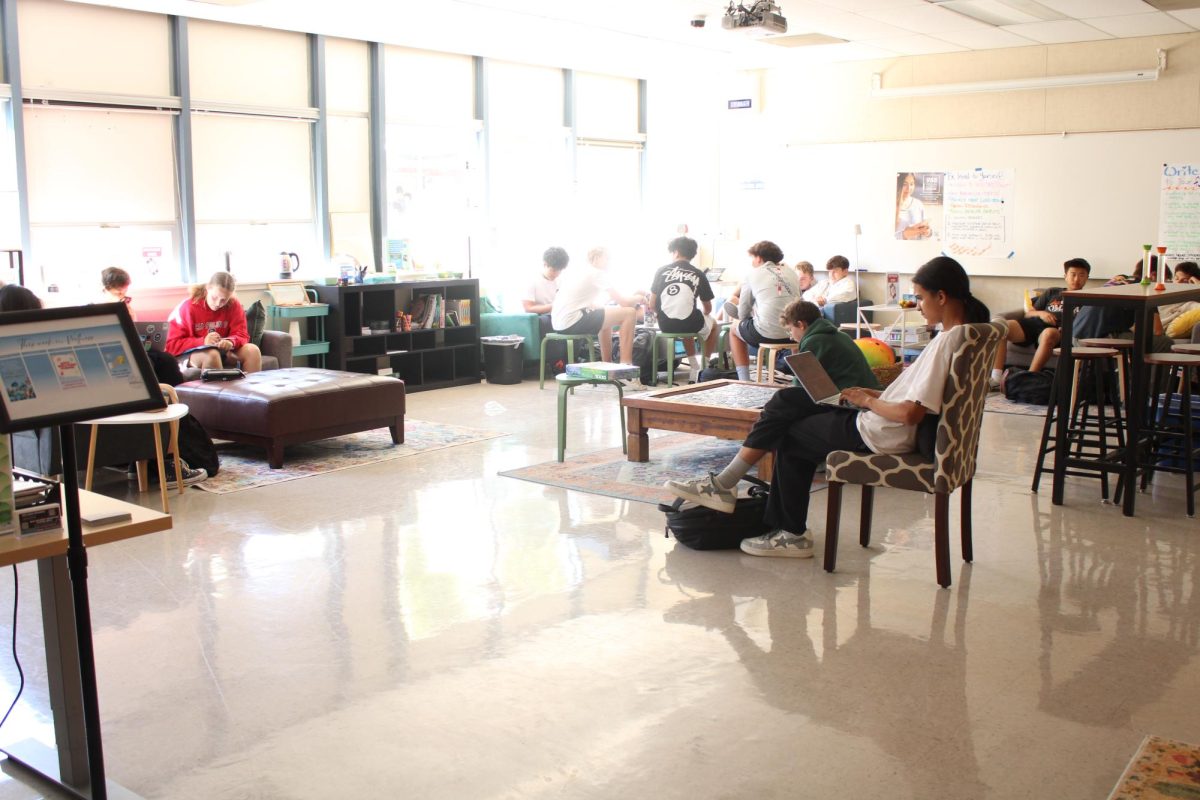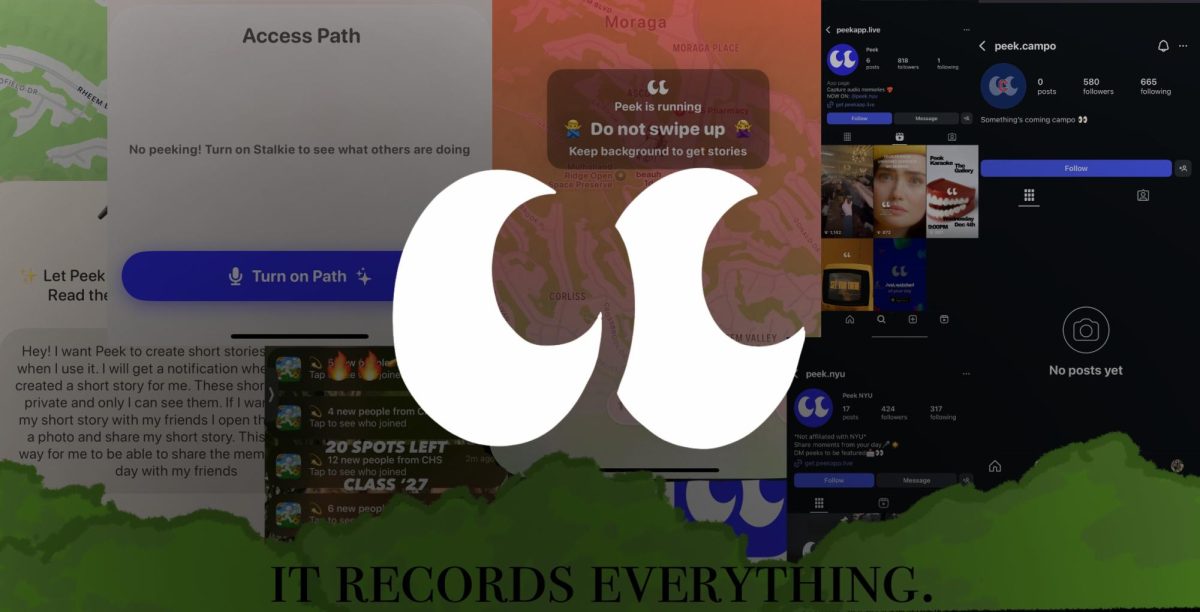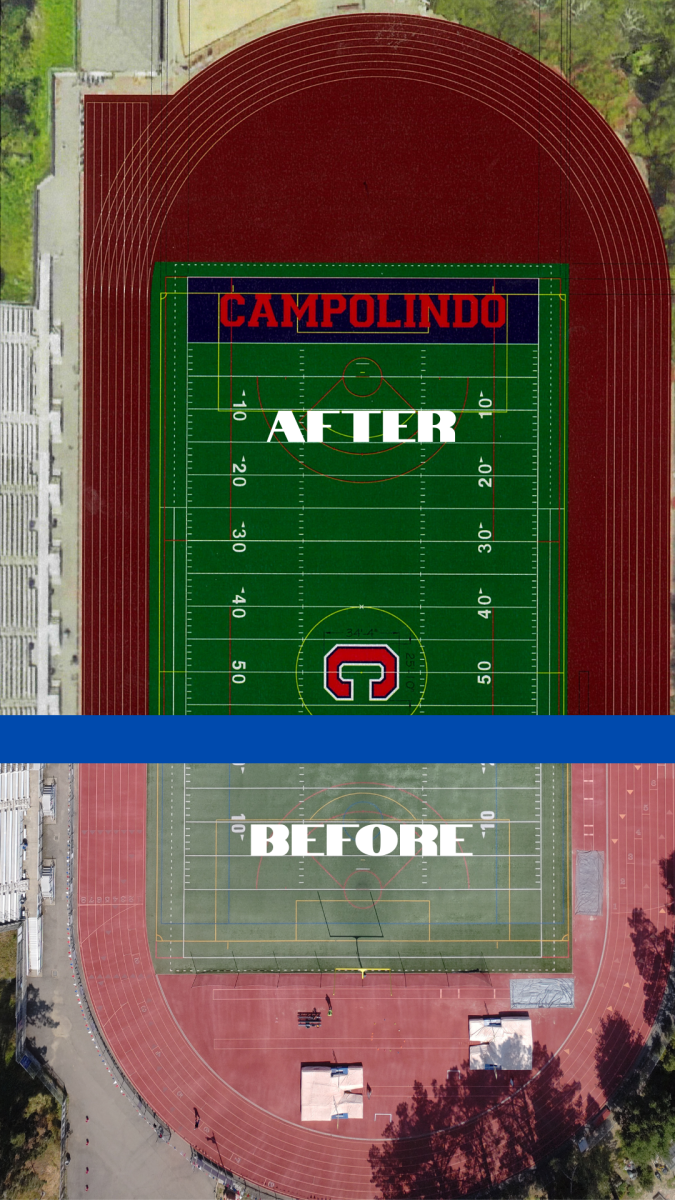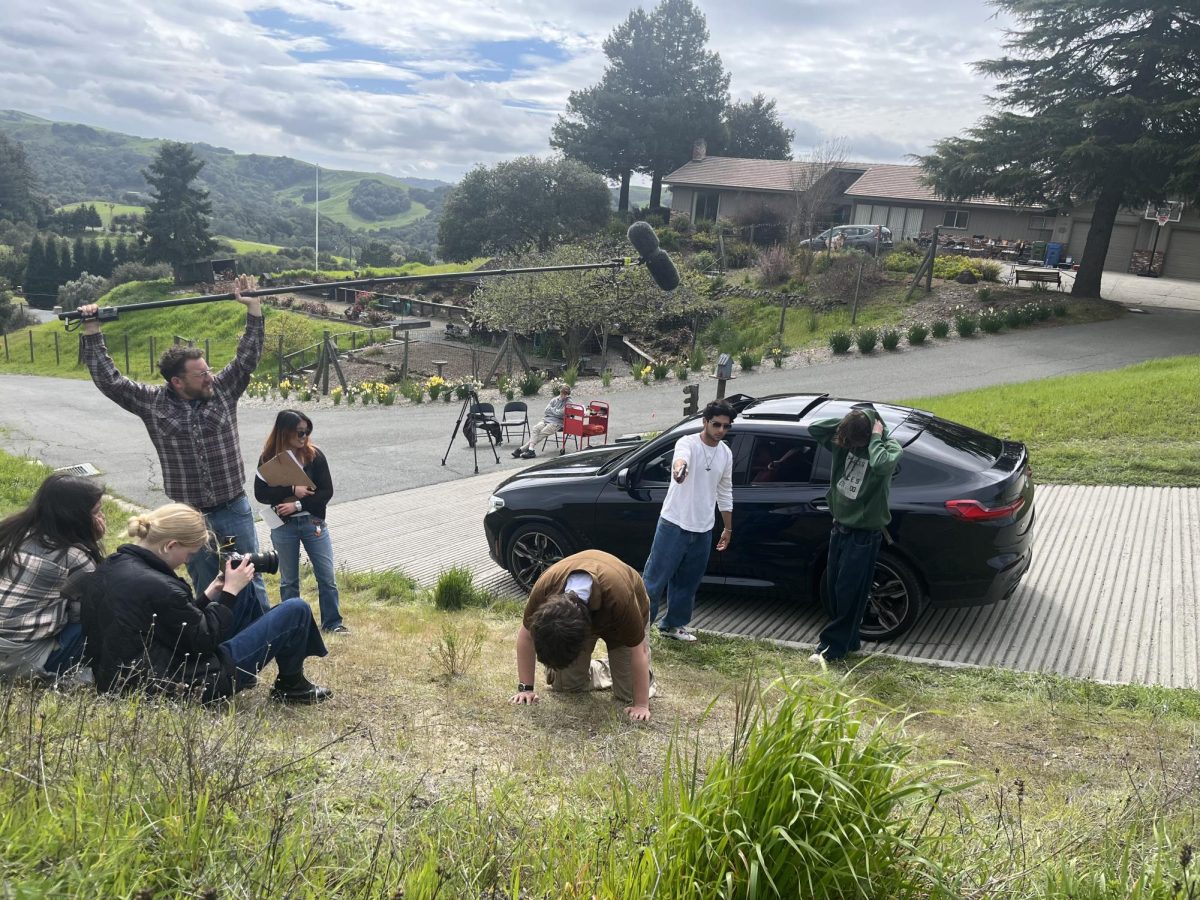Have you ever driven through Lamorinda and noticed a pole with a black box mounted on top?
That box isn’t a streetlight or a speed camera; it’s an Automated License Plate Recognition (ALPR) camera, the latest in a nationwide surveillance project.
In recent years, the Moraga Police Department quietly expanded its surveillance footprint, installing ALPRs from a number of companies, including Flock Safety, around town. These invasive AI-powered cameras track the movements and identifiable information of any car that enters and exits the city, such as bumper stickers, decals, and dents. Upon detection of a license plate, an image is recorded and saved to a searchable database that any collaborating agency in the country can use to track and surveil anyone – regardless of whether they have committed any wrongdoing.
Investigations by independent media have discovered the ongoing use of Flock data to carry out the Trump administration’s unjustifiable and inhumane deportation agenda. In response to the unsurprisingly negative feedback from citizens around the country, Flock has promised not to share data directly with federal authorities. However, in practice, this statement hasn’t done anything to stop anyone with access to the software from ‘collaborating’ with ICE.
Police officials, like Moraga Chief Jon King, emphasized that these tools are limited to investigations and are not shared with Immigration authorities due to California law (SB54). ”We don’t share with Feds. We don’t cooperate. We don’t work with ICE,” King says. King argues that transparency is key to building trust, “People have to understand that we’re doing our jobs, we’re doing them well, and we’re doing them correctly.” However, trust alone does little to tackle the core problem: mass surveillance always expands beyond its original intent.
Some students see the upside of mass surveillance. Senior Connor McLemore shared that, “There’s plenty of really, really bad drivers here so I think overall, it’s a good thing. And even just not talking about students, if there’s a crime or anything and they are able to record the license plate, it would be super helpful.”
Moraga has spent over $70,000 on its ALPR systems over three years. That capital buys a year’s worth of retention for every image captured. In just one year, Moraga recorded over 4.5 million license plate scans but only 1,500 hot-list hits, which means that for every potential detection of a car linked to wrongdoing, about 3,000 innocents were tracked.
Other students, like senior Rebecca Tanner, remain unconvinced by the threat level surveillance poses: “I don’t think it’s affecting many people right now. I hadn’t really heard about surveillance technology. So I think it’s not so prevalent in my life. But I can totally see, as time goes on, that technology is being put to different uses.” It’s precisely these “different uses” that are the real danger. Students may shrug at surveillance today, but given the trajectory of the country, tomorrow those same cameras couldwill be used to track people driving to Planned Parenthood, undocumented people, or those participating in protests. The possibility of data breaches adds another layer of risk: independent analysts have shown that Flock Safety’s battery packs emit recognizable Bluetooth signals that anyone can see and use to identify, track, and, if they have the tools available, gain access to the live feed. If a company worth $7.8 billion can’t keep its hardware secure, how can it guarantee the security of millions of Americans’ personal data?
As students, we are not powerless. Sites like Deflock.me map the locations of ALPR cameras and make them public. They also provide information about how to protect yourself from the increased surveillance, as well as methods such as wardriving, which passively searches through wifi networks while you drive to help your community keep track of these fast-evolving technologies.
We can also sponsor legislation like Community Control Over Police Surveillance (CCORPS) Bills. For example, in 2019, advocacy from the American Civil Liberties Union (ACLU) led to the use of CCORPS to block facial recognition technology from being used in San Francisco. The ACLU played an instrumental role in these efforts to claw back privacy from multi-billion dollar corporations, and through the advocacy of the Campolindo community and the residents of the city as a whole, we can do the same.
*The Campo Claw has reached out to Flock Safety for comment but has yet to hear back
